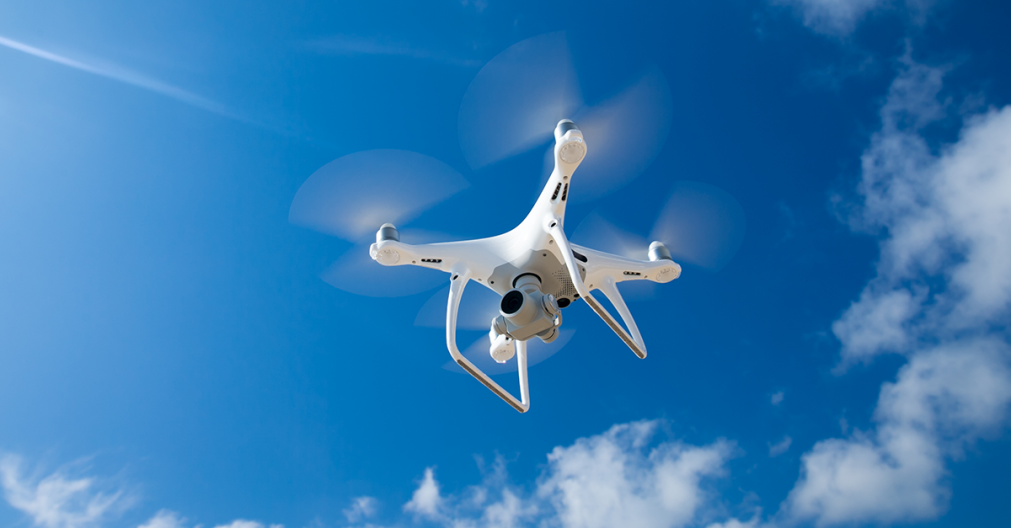The Sky Has It’s Limits: Drone Insurance & Safety
July 15, 2021
Drones are usually thought of as toys or hobbyist aircrafts. However, they also constitute a substantial risk to your family, home and privacy. Whether or not you own a drone, it’s important that you’re aware of regulations and safety tips regarding their use. Keep reading to learn more about recreational drone standards and safe operation practices.
INSURANCE
For personal use many drones are considered a model or hobby aircraft, so most homeowners or renters insurance policies will cover them as personal property by your insurance. You must recreationally use it as a hobby though. If covered, your policy may pay your claim if:
• Your drone damages someone else’s property, home or car.
• Your drone causes bodily injury to someone else.
When using a drone as a hobby, you should always check with your agent to make sure you have the proper coverage in place.
Using your drone for business purposes, such as filming weddings for clients, or for real estate listings, is considered business use. When drones are used commercially they would not covered by your home or renters insurance and you should set up the proper coverage under your business insurance program. You should speak to a Robertson Ryan agent or associate for more information as it relates to insuring a drone for your specific needs.
To ensure coverage in any instances, it’s important to follow federal and local drone ordinances, as not doing so may negate your insurance coverage in the event of an accident. Below are some further regulations and safety tips while operating a drone.
FAA Clearance
Obtain Federal Aviation Administration (FAA) clearance before each flight. A drone pilot can easily do this on a smartphone by utilizing the AirMap app, which provides instant clearance or rejection of a flight from the FAA. It’s also important to have a preflight checklist that is always followed prior to operating a drone. The checklist should include the following procedures:
- Verify that flight logs are up to date from the prior inspection.
- Visually inspect the aircraft for damage, which could hinder a safe flight.
- Confirm that the batteries for the aircraft and the controller are charged for the planned flight.
- Check the AirMap app and confirm that the flight area is not restricted. Take screenshots as applicable.
- Verify that the rotors are properly installed.
- Notify bystanders or observers of the planned flight path and request that they maintain an appropriate distance.
- Check that obstacles are not in the way of the drone takeoff or landing paths.
Recreational Drone Regulations
Here are the basic guidelines for registering recreational drones with the Federal Aviation Administration:
- Drones that weigh between 0.55 pounds and 55 pounds must be registered online.
- Once registered, you will receive a registration number that must be placed on your drone.
- The registration is valid for three years. Failing to register a drone can result in regulatory and criminal penalties.
Drone Safety Tips
Use these tips to safely operate drones:
- Check your local laws and ordinances to ensure that drones can be operated in your area.
- Make sure that the drone’s operator is comfortable with the controls.
- Don’t fly the drone above 400 feet, and always remain below any surrounding obstacles.
- Keep the drone in sight at all times, and have an observer assist the operator if needed.
- Don’t operate the drone when it’s windy, or in other inclement weather.
Ensure Data Security
Researchers have shown that drones equipped with smartphones can access data from insecure devices. And, since drones can access areas that a normal person couldn’t, they could potentially access your family’s private information and violate your privacy. As such, make sure that your home’s networks and devices are safe from intrusion by implementing robust household cybersecurity measures.
For more home safety guidance and homeowners insurance solutions, contact us today.
Source: Zywave

